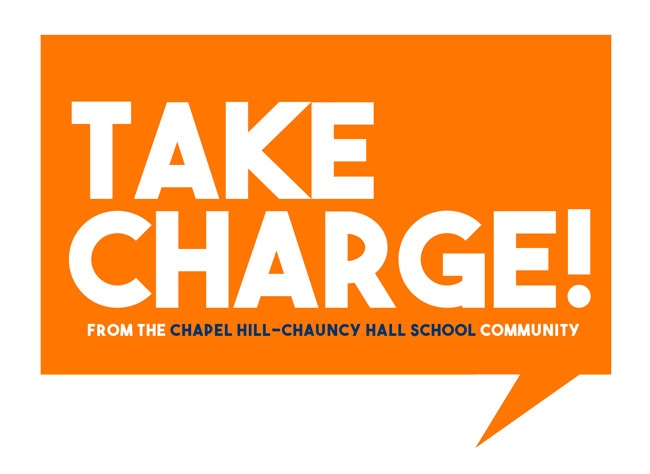Navigating the world of private school financial aid can feel overwhelming—but it doesn’t have to be. Whether you’re curious about how financial aid works, wondering what schools look for in applications, or trying to determine your eligibility, we’re here to help you get the answers you need.
.png?width=1100&height=600&name=Tim%20Seston%20Blog%20Cover%20(1).png)
To provide insights, we sat down with Shannon Fortin, the Associate Director of Admissions & Director of Financial Aid at Chapel Hill-Chauncy Hall School. With years of experience helping families make private education more accessible, Shannon will answer 10 of the most common questions about financial aid at private schools.
If you’ve ever wondered how to make a private school education more affordable, you’re in the right place. Let’s dive into Shannon’s advice!
What types of financial aid are available at private schools?
Private schools typically offer two main types of financial aid:
- Need-based financial aid, which is awarded based on a family’s demonstrated financial need.
- Merit-based scholarships, which are granted for exceptional academic achievement, artistic talent, athletic ability, or leadership skills.
Some schools also provide tuition payment plans, sibling discounts, or special grants to make tuition more manageable for families.
At Chapel Hill-Chauncy Hall, we offer both! While there is a process to apply for need-based financial aid, all applicants are automatically considered for scholarships, so there’s no need to do a separate application.
How do I apply for financial aid, and what documents are required?
To apply for financial aid, most private schools use a third-party service, such as Clarity, School and Student Services (SSS) platform or FACTS. These services help schools assess a family’s financial situation.
Typically, you’ll need to complete an application and submit:
- Recent tax returns (e.g., Form 1040 and W-2s)
- Business tax returns, if applicable
- A detailed family financial statement
- Additional documents the school may request (e.g., proof of assets or liabilities)
Be sure to check each school’s financial aid website for specific instructions and deadlines.
CH-CH uses Clarity, which makes the application process clear and straightforward for families. We understand that the process of applying for financial aid can be overwhelming, but the Clarity application is simple to complete, mobile-friendly, and can automatically transfer documents from the IRS. Our goal is to make the financial aid application process as easy as possible for your family.
Are scholarships at private schools based on merit, need, or both?
It depends on the school. Many private schools offer need-based financial aid to ensure access to families who might not otherwise afford tuition. Some schools also offer merit scholarships to attract top-performing students in academics, arts, athletics, or other fields.
Ask each school about the specific types of aid they provide and whether merit scholarships are available.
CH-CH offers both scholarships and need-based financial aid, and every CH-CH applicant is considered for a scholarship, so there’s no need to complete another application!
When is the best time to apply for financial aid or scholarships?
The best time to apply is as early as possible! Financial aid deadlines typically align with admission application deadlines. Many schools have priority deadlines in December or January for the following school year.
It’s crucial to check the specific deadlines for each school and submit all required materials on time. Some schools award aid on a first-come, first-served basis, so earlier is always better.
January 15th is the deadline at CH-CH for both school applications and financial aid applications. As long as you have all of the required pieces in by that date, you will be in the first round of admission and financial aid decisions, which are released on March 10th. Our admissions team will let you know if we are approaching the deadline and there are still pieces of your application missing, but it’s always a good idea to follow up with us, we are happy to answer any questions or check on the status of application!
How is financial aid eligibility determined?
Eligibility is determined by evaluating your family’s financial situation. Most schools use a formula that considers:
- Household income
- Assets (e.g., savings, investments, home equity)
- Number of children in tuition-charging schools
- Expenses and liabilities
The goal is to calculate what your family can reasonably contribute toward tuition. The remaining amount becomes your “demonstrated need,” which guides the school’s financial aid decision. The financial aid application also allows you to include more information about your family’s financial situation. Sharing as much information as you are comfortable with is always best, so the financial aid committee can consider all factors in their decision-making.
Can we receive financial aid or scholarships if we don’t have a low income?
Yes, financial aid is not solely about income. Schools consider the full picture of your family’s financial situation, including expenses like mortgages, medical bills, and multiple children in school. Even middle- or higher-income families may qualify for aid if they face significant financial obligations.
Do private schools offer sibling discounts or special programs for families with multiple children?
Many private schools offer sibling discounts to help families with multiple children afford tuition. These discounts typically range from 5% to 20% off tuition for each additional child.
Additionally, some schools have family grants or tiered tuition programs to support larger families. Be sure to ask schools about their specific policies.
Are there external scholarships or grants available for private school tuition?
Yes, external scholarships and grants are available through community organizations, foundations, and religious institutions. For example:
- Jack Kent Cooke Foundation
- Children’s Scholarship Fund
- Local community or cultural organizations
Check with your school’s financial aid office for suggestions and explore local resources in your area.
If our financial situation changes, can we adjust our financial aid package?
Yes, schools strive to support families through challenging times whenever possible.
Most schools allow families to request a reassessment of their financial aid package if their circumstances change significantly—such as a job loss, unexpected medical expenses, or other hardships.
At CH-CH, families receiving financial aid reapply each year. Clarity saves much of the information from the past, so the re-application process is even easier than for first-time applicants, but the purpose is to make sure that the School has an accurate picture of each family's financial situation, and to give families a chance to share any recent changes.
What happens if we don’t qualify for financial aid but still can’t afford full tuition?
If you don’t qualify for aid but need help affording tuition, consider the following options:
- Tuition payment plans: Many schools offer plans that allow you to spread payments over 10–12 months.
- Merit scholarships: If available, your child may qualify for merit-based awards.
- Appeal the decision: Contact the school’s financial aid office to discuss your situation. Some schools can offer additional support on a case-by-case basis.
- External resources: Explore grants, scholarships, or employer tuition assistance programs.
Communication is key—reach out to the school to discuss your concerns and explore creative solutions.
To learn more about CH-CH's approach to financial aid visit www.chch.org/admissions/affording
















